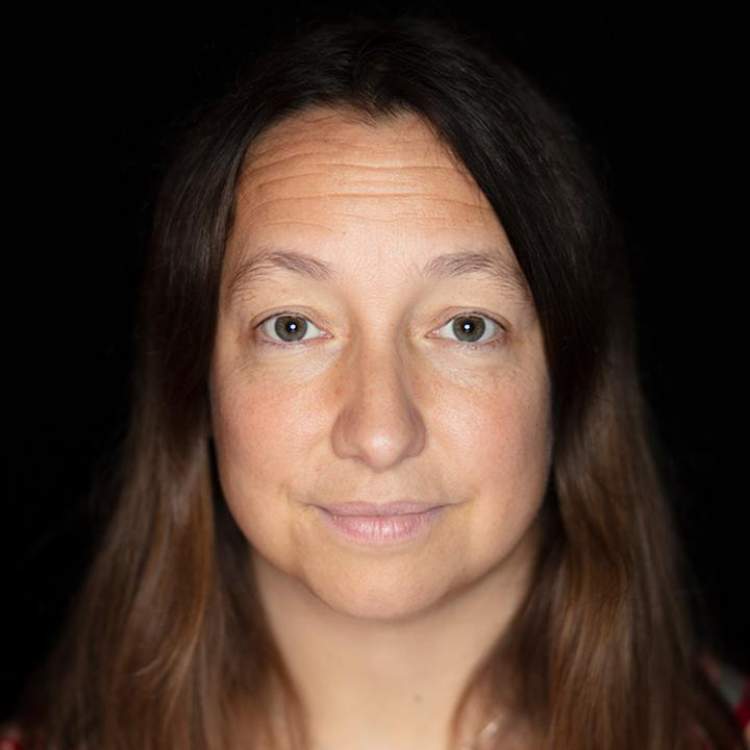
Professor Kerry Howell
Ocean Challenge Lead: Biodiversity Loss
kho@pml.ac.uk | +44 (0)1752 633100 (switchboard)"I am a passionate advocate for science-informed management of the deep ocean and high seas. My career has been focused on providing knowledge on benthic deep-sea ecosystems to management bodies to inform decision-making. "
Kerry Howell is Professor of deep-sea ecology at the Plymouth Marine Laboratory and the University of Plymouth. She has expertise in use of ROVs and AUVs, seafloor imagery acquisition and analysis, predictive modelling of species distributions, and the application of deep-learning to image analysis.
Throughout her career Kerry’s research has been focused on sustainable management of the deep-sea ecosystem. Her research has supported the design of national and international marine protected area networks, including the creation of reliable habitat maps, and models of population connectivity that under-pin the design. Her current research is focused on the automation of biological observations using image-based methods to generate the big data needed to construct more reliable models of biodiversity distributions in time and space.
Kerry has published >70 peer reviewed publications, and over 20 advisory reports. She is co-lead of the UN Ocean Decade Programme Challenger 150, a global initiative to map life in the deep ocean in support of UN Sustainable Development Goals. In this role, Kerry is working with the global deep-sea research community in efforts to standardise data collection, processing, and management, which includes the development of AI approaches to image-based data analysis.
Key Projects
Development of a pan-Atlantic research network dedicated to ocean-scale biodiversity mapping
September 2023-2024. Role: PI.
Project funded by the UK’s Science and Innovation Network to support science collaboration between the UK and Portugal under the UN Ocean Decade endorsed Challenger 150 Programme which is co-lead by UK and Portugal.
Towards net zero: development of AI enabled biological observing
November 2022 – 2023. Role: PI
Our overarching aim in this NERC funded project is to develop AI enabled biological observing. This project represents an important step toward that aim in providing knowledge on the most effective methods of application of deep learning to automated interpretation of autonomous underwater vehicle acquired benthic imagery.
Challenger 150
Role: Programme co-lead.
This is a global scientific cooperative developed to respond to the needs of the UN Ocean Decade. It is a vehicle for coordination of deep-sea research globally towards a set of common objectives. These objectives are set out by the UN Ocean Decade but here are set in the deep-sea research context.
One Ocean Hub
Role: Co-Director of the Hub
This is a £20 million project funded by UK Research and Innovation (UKRI) through the Global Challenges Research Fund (GCRF) from 2019-2024. There are 24 research partners, and 35 project partnerorganisations. The Hub’s aim is to predict, harness and share equitably environmental, socioeconomic and cultural benefits from ocean conservation and sustainable use.
Mission Atlantic
Role – Co-I (Plymouth PI)
This is a €10 million EU H2020 research project focused on the sustainable management of the Atlantic ecosystem (2020-2024). The project involves 34 partners from 15 countries. My role is as a contributor to two different work packages in the project, but principally in the areas of deep-sea habitat mapping and technological development (AI and autonomy).
Conservation strategies for biodiversity hotspots and safe havens in a changing climate: oceanographic drivers of ecosystem variability in the Chagos archipelago
Role – Co-I
This is an interdisciplinary project involving oceanographers, marine biologists, hydrographic surveyors and biogeochemists from the University of Plymouth and the Manta Trust. It is part of a wider programme of research within BIOT . Our aim is to learn what processes and interactions sustain a healthy reef ecosystem. My focus is the mesophotic coral reef systems, their composition, connectivity, drivers of their distribution, and processes maintaining overall health.
Seabed Mining and Resilience to Experimental Impact
Role – Co-I (Plymouth PI)
This is a £4 million NERC funded project researching the potential impacts of deep-sea mining on abyssal ecosystems (2021-2025). My role is a as a contributor to a work package, contributing research that will model the connectivity of marine animal populations both inside and outside areas identified for deep-sea mining. This project is in collaboration with industry and other UK research institutes.
SMarTaR-ID
Role – project lead
A largely unfunded grass roots initiative to develop a global standardised marine taxon reference image database (SMarTaR-ID) to support image-based analyses. The project consists of an international consortium of scientists from 29 organisations, including academia, industry and Government, from 8 nations bordering the North Atlantic.
Selected Publications
- Howell KL. 2010. A benthic classification system to aid in the implementation of marine protected area networks in the deep/high seas of the NE Atlantic. Biological Conservation 143(5): 1041-1056.
- Howell KL, Holt R, Endrino IP & Stewart H. 2011. When the species is also a habitat: Comparing the predictively modelled distributions of Lophelia pertusa and the reef habitat it forms. Biological Conservation 144(11): 2656-2665.
- Ross RE & Howell KL. 2013. Use of predictive habitat modelling to assess the distribution and extent of the current protection of “listed’ deep-sea habitats. Diversity Distribution 19(4): 433-445.
- Hilario A, Metaxas A, Gaudron SM, Howell KL, Mercier A, Mestre NLC, Ross RE, Thurnherr AM & Young C. 2015. Estimating dispersal distance in the deep sea: challenges and applications to marine reserves. Frontiers in Marine Science 2.
- Dunn DC, Van Dover CL, Etter RJ, Smith CR, Levin LA, Morato T, Colaço A, Dale AC, Gebruk AV, Gjerde KM, Halpin PN, Howell KL, Johnson D, Perez JAA, Ribeiro MC, Stuckas H, Weaver P, Sempia Workshop Participants. 2018. A strategy for the conservation of biodiversity on mid-ocean ridges from deep-sea mining. Science Advances 4(7).
- Howell KL, Piechaud N, Downie AL & Kenny A. 2016. The distribution of deep-sea sponge aggregations in the North Atlantic and implications for their effective spatial management. Deep Sea Research Part I: Oceanographic Research Papers.
